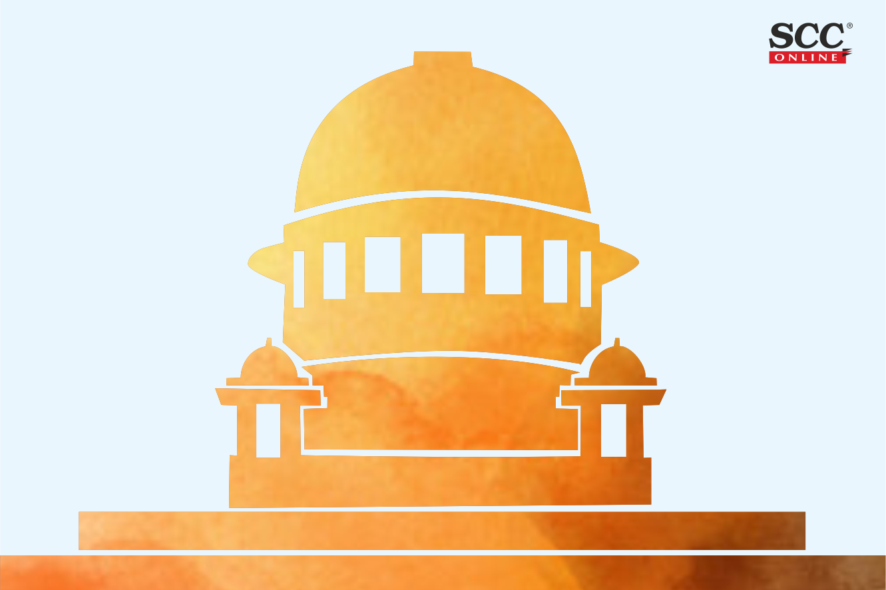Supreme Court of India: Observing the well-settled position of law that, Mutation Entry does not confer any right, title or interest in favour of the person and it is only recorded for the fiscal purpose, Division Bench of M.R. Shah and Aniruddha Bose, JJ., upheld the decision of the Madhya Pradesh High Court.
Aggrieved and dissatisfied with the impugned decision passed by the Madhya Pradesh High Court by which the High Court allowed the petition and quashed the decision by Additional Commissioner, Rewa Division directing to mutate the name of the petitioner in the revenue records, which was sought to be mutated on the basis of the will, the original respondent 6 preferred the present special leave petition.
Analysis, Law and Decision
Supreme Court stated that the dispute was with respect to mutation entry in the revenue records.
It emerged that the application before the Nayab Tehsildar was made on 9-8-2011, i.e., before the death of Ananti Bai, who executed the alleged will.
Bench added that, it cannot be disputed that the right on the basis of the will can be claimed only after the death of the executant of the will. Even the will itself has been disputed.
Settled Position of Law
Mutation entry does not confer any right, title or interest in favour of the person and the mutation entry in the revenue record is only for the fiscal purpose.
If there is any dispute with respect to the title and more particularly when the mutation entry is sought to be made on the basis of the will, the party who is claiming title/right on the basis of will has to approach the appropriate civil court and get his rights crystalized and only thereafter on the basis of the decision before the civil court necessary mutation entry can be made.
Analyzing further, the Court added that right from 1997, the law is very clear. In Supreme Court’s decision of Balwant Singh v. Daulat Singh, (1997) 7 SCC 137, Court had considered the effect of mutation and observed that mutation of property in revenue record neither creates nor extinguishes title to the property nor has any presumptive value on title. Such entries are relevant only for the purpose of collecting land revenue.
In the Supreme Court decision of Suraj Bhan v. Financial Commissioner, (2007) 6 SCC 186, it was observed that an entry in revenue records does not confer title on a person whose name appears in record-of-rights. Entries in the revenue records or jamabandi have only “fiscal purpose”. So far as the title of the property is concerned, it can only be decided by a competent civil court.
In the following decisions also, the above view was taken:
Suman Verma v. Union of India, (2004) 12 SCC 58; Faqruddin v. Tajuddin (2008) 8 SCC 12; Rajinder Singh v. State of J&K, (2008) 9 SCC 368; Municipal Corporation, Aurangabad v. State of Maharashtra, (2015) 16 SCC 689; T. Ravi v. B. Chinna Narasimha, (2017) 7 SCC 342; Bhimabai Mahadeo Kambekar v. Arthur Import & Export Co., (2019) 3 SCC 191; Prahlad Pradhan v. Sonu Kumhar, (2019) 10 SCC 259; and Ajit Kaur v. Darshan Singh, (2019) 13 SCC 70.
While concluding the matter, Supreme Court held that it cannot be said that High Court committed any error in setting aside the order passed by the revenue authorities to mutate the name of the petitioner in revenue records on the basis of alleged will and relegating the petitioner to approach the appropriate Court.
Therefore, the Special Leave Petition was dismissed. [Jitendra Singh v. State of M.P., 2021 SCC OnLine SC 802, decided on 6-09-2021]
Advocate before the Court:
Nishesh Sharma, Advocate appearing for the petitioner.








Degree for declaration of ownership and possession but collector canceled the lease of the nazul land which is perpetual can collector has any right to canceled the lease